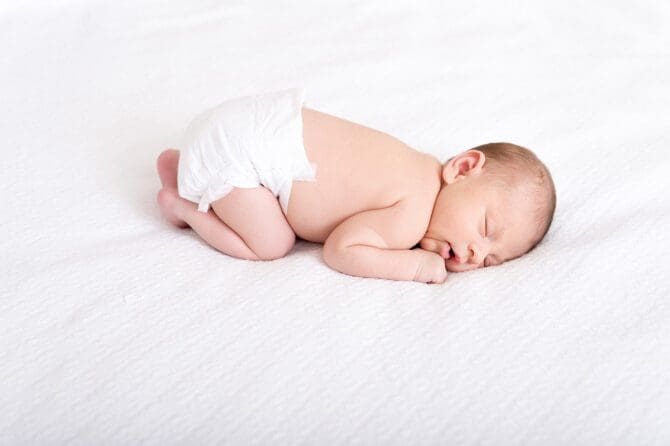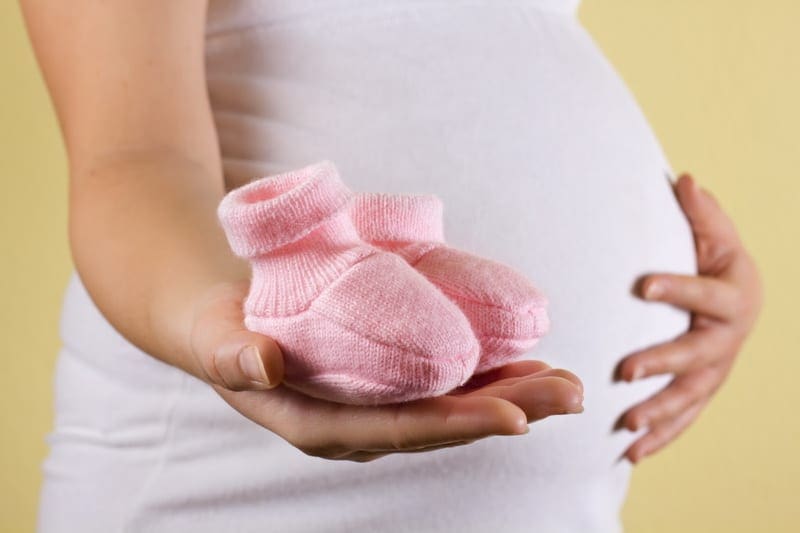It’s estimated that anywhere from 10 to 25 percent of known pregnancies end in miscarriage. Loss of pregnancy through miscarriage can be an emotionally devastating experience for a woman and her partner. The feeling of grief is often intensified because the loss is not fully recognized or acknowledged. A period of mourning is necessary to come to terms with the loss. The physical side effects following a miscarriage are also often underestimated. Not only do women experience the obvious loss of the pregnancy, they also go through labor and delivery. The resulting hormonal changes can cause symptoms ranging from mild to severe.
1. After a miscarriage, it is common for a woman’s body to take some time to recover before she can become pregnant again. 2. There is no set time frame for how long a woman should wait before trying to conceive again, but most doctors recommend waiting at least a few months. 3. Some women may experience fertility issues after a miscarriage, so it is important to speak with a doctor before trying to conceive again. 4. Getting pregnant right after a miscarriage is not necessarily dangerous, but it can be more risky than waiting a bit longer. 5. If a woman does become pregnant soon after a miscarriage, she will likely be monitored more closely by her doctor. 6. There is a chance that the pregnancy could miscarry again, but this is not always the case. 7. Ultimately, the decision of when to try and conceive again after a miscarriage is a personal one and should be made in consultation with a doctor.
1. After a miscarriage, it is common for a woman’s body to take some time to recover before she can become pregnant again.
It is common for a woman’s body to take some time to recover after a miscarriage before she can become pregnant again. During this time, it is important for a woman to focus on her own health and wellbeing. There are a few things that can help a woman to heal after a miscarriage: -Rest: It is important to allow your body to rest after a miscarriage. This can be physical and emotional rest. Taking some time for yourself can help you to feel better. -Talk to someone: Talking to a friend, family member, or therapist can be very helpful. It can help you to express your feelings and to get support. -Eat healthy: Eating healthy foods can help your body to heal. Eating a balanced diet with plenty of fruits, vegetables, and whole grains can help your body to recover. -Exercise: Exercise can help to improve your mood and to increase your energy levels. It is important to start slowly and to listen to your body. -Take your time: There is no set time frame for healing after a miscarriage. It is important to give yourself time to heal both physically and emotionally.
2. There is no set time frame for how long a woman should wait before trying to conceive again, but most doctors recommend waiting at least a few months.
There is no set time frame for how long a woman should wait before trying to conceive again after a miscarriage, but most doctors recommend waiting at least a few months. This allows the woman time to physically and emotionally recover from the loss. It also gives the woman time to have any needed tests or procedures done to find out the cause of the miscarriage. If the woman has multiple miscarriages, she may be diagnosed with recurrent pregnancy loss (RPL). RPL is defined as three or more consecutive losses before 20 weeks of pregnancy. If a woman has RPL, her doctor may recommend testing to find the cause. There are many possible causes of RPL, such as hormone imbalances, uterine abnormalities, and celiac disease. Treating the underlying cause can often help a woman have a successful pregnancy. For a woman who has had a miscarriage, the decision of when to try to conceive again is a personal one. Some women feel ready to try right away, while others need more time. There is no right or wrong answer, and each woman should do what feels right for her.
3. Some women may experience fertility issues after a miscarriage, so it is important to speak with a doctor before trying to conceive again.
After a miscarriage, some women may have difficulty getting pregnant again. This is because the miscarriage can cause changes to the cervix and uterus, making them less hospitable to a developing embryo. In addition, the miscarriage can cause changes to the hormonal balance in the body, which can affect fertility. Therefore, it is important to speak with a doctor before trying to conceive again.
4. Getting pregnant right after a miscarriage is not necessarily dangerous, but it can be more risky than waiting a bit longer.
If you miscarry, you may be wondering if you can get pregnant right away or if you need to wait. There is no right answer, as every situation is different. However, it is important to know that getting pregnant right after a miscarriage can be more risky than waiting a bit longer. When you miscarry, your body is going through a lot of changes. You may have bleeding and cramping, and your hormone levels are changing. This can make it difficult to know when you ovulate, which is when you’re most fertile. If you get pregnant before your body has had a chance to fully recover, you’re at a higher risk for another miscarriage. Additionally, if you miscarry early in your pregnancy, your chances of conceiving again are very good. In fact, most women who miscarry go on to have a healthy pregnancy. However, if you miscarry later in your pregnancy, your chances of conceiving again are lower. If you’re considering getting pregnant right after a miscarriage, it’s important to talk to your doctor. They can help you weigh the risks and benefits of waiting or trying again right away.
5. If a woman does become pregnant soon after a miscarriage, she will likely be monitored more closely by her doctor.
Around 20 percent of known pregnancies end in miscarriage, and for many women, getting pregnant again is something they want to do right away. There is no right or wrong answer when it comes to how soon is too soon to conceive after a loss, but if a woman does become pregnant soon after a miscarriage, she will likely be monitored more closely by her doctor. During a regular pregnancy, it is recommended that women see their doctor or midwife every four weeks during the first 28 weeks, then every two weeks until 36 weeks, and then every week until the baby is born. After a miscarriage, a woman will probably be seen more frequently, at least until her care provider is confident that the new pregnancy is progressing well. There are a few reasons for this. First, it is possible for a woman to have an undetected molar pregnancy, which is a type of cancer that can masquerade as a pregnancy. A molar pregnancy can only be diagnosed after a miscarriage or abortion, but by then it may be too late. Molar pregnancies are very rare, but they are more likely to occur in women who conceive soon after a miscarriage. Another reason why women who conceive soon after a miscarriage may be monitored more closely is because of the risk of preterm labor. Women who have had a previous miscarriage are more likely to experience preterm labor, and those who conceived within six months of their previous miscarriage are at the highest risk. Of course, the vast majority of pregnancies that occur soon after a miscarriage are healthy and uneventful. But because of the risks, it is important for women to be aware of them and to speak with their care provider about their concerns.
6. There is a chance that the pregnancy could miscarry again, but this is not always the case.
It is possible to get pregnant immediately after a miscarriage and there is a chance that the pregnancy could miscarry again. However, this is not always the case and many women go on to have healthy pregnancies. If you do miscarry again, it is important to remember that it is not your fault and that you are not alone. Miscarriage is very common, affecting up to one in five pregnancies. There is no evidence that suggests that having a miscarriage increases your risk of miscarrying in future pregnancies. However, if you have had three or more miscarriages in a row (known as recurrent miscarriage), you may be offered further tests and treatments to find out if there is an underlying cause. It is also important to remember thatmiscarriage is not something that can be prevented. If you have had a miscarriage, it does not mean that you will never be able to have a successful pregnancy. With the right support and information, many women go on to have healthy babies.
7. Ultimately, the decision of when to try and conceive again after a miscarriage is a personal one and should be made in consultation with a doctor.
Ultimately, the decision of when to try and conceive again after a miscarriage is a personal one and should be made in consultation with a doctor. Some couples may want to wait a few months, while others may want to start trying immediately. There is no right or wrong answer, and ultimately it is up to the individual or couple to decide what is best for them. If a couple does want to start trying to conceive again right after a miscarriage, there is no need to wait for a specific amount of time. It is possible to ovulate and get pregnant as early as two weeks after a miscarriage. However, it is also important to be aware that the risk of miscarrying is higher in the first few weeks after a miscarriage. Some couples may want to wait a few months to give their bodies time to recover, while others may feel ready to start trying again right away. It is also important to consult with a doctor to make sure that there are no underlying medical conditions that could contribute to another miscarriage. If a couple has experienced multiple miscarriages, they may want to consider genetic testing to see if there is a specific cause. Treatment for underlying medical conditions can help to reduce the risk of miscarrying in the future. Again, there is no right or wrong answer when it comes to trying to conceive after a miscarriage. Some couples may feel ready to start trying right away, while others may want to wait a bit longer. Ultimately, it is up to the individual or couple to decide what is best for them.
If you miscarry and then become pregnant again within a short period of time, there is no evidence to suggest that this increases your risk of miscarrying again. In fact, your risk of miscarrying is the same as if you had not miscarried before.










